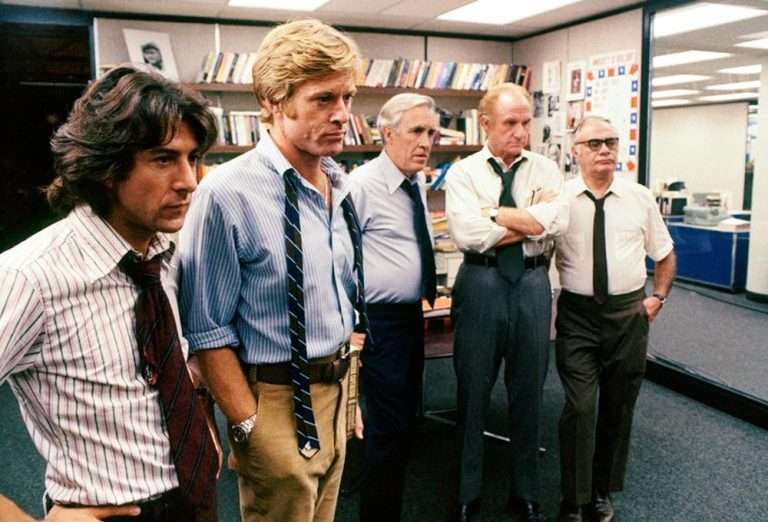Floyd Russ’ Ayar, in its essence, diverges towards different branches of filmmaking; at first a little unfathomably, but not so much as it progresses. Ayar, at its core, starts as a familiar familial story of relationships and the hindrances posed by them towards the fulfillment of personal dreams; and also the opposite where personal ambitions demand familial sacrifices. This seems to be the story, based on which Russ tries to address many things: the socio-economical scenarios of pandemic hit America, and the world in general, the love of a mother for her daughter, and experimentation in storytelling.
Ayar (Ariana Ron Pedrique) is the eponymous central character, a singer and actress with dreams that could become the source of pain for the dreamer. In search of ‘making big,’ she gets into a relationship with a man (Simon Haycock), who she presumed would help her in her goal. Inevitably for the story, the relationship is not what she hoped it to be. She had to do odd gigs in Las Vegas and also became pregnant, a complication her boyfriend wanted to avoid.
Related to Ayar – A Simple Favor [2018] Review: A Cocktail with Flavor
All of these are told in a narrative that is interspersed with flashbacks and Ayar’s current situation. This is where Russ hints at the meta-thinking he was about to display later in the film. Russ introduces each character with a unique montage of photos of the characters, from childhood to current age. These photos are presumably of the actors themselves, and here it starts to minutely blur the lines between fiction and reality.
As by more flashbacks, we are told that Ayar did have the aforementioned baby, a girl; it was also revealed that she had to abandon that daughter, as it would have been detrimental for her career. The daughter was being raised by her grandmother, Ayar’s mother, Renata (Vilma Vega). As Ayar looks to reconnect with her daughter, the world is hit by the COVID-19 pandemic. This also becomes the excuse for Renata, not having the best of the relation with her daughter anymore, to stop Ayar from meeting Ayar’s daughter. Ayar remains determined though and stays in a motel near her daughter, and also takes a maid’s job for the purpose of sustainability during the pandemic.
Russ here tries to address many socio-economical facets of modern America; where a Latin woman dares to dream beyond the stereotypical jobs and roles. Russ subtly addresses the hit the entertainment industry took from the pandemic. And this is also where Russ starts to throw the meta facets he had planned (or maybe forced to do due to pandemic). This starts with a character randomly breaking the fourth wall and addressing the viewers on the topic of how much a viewer’s liking of the film depends on how the viewer relates with the characters of the film.
Honestly, this seems offhand at first but then Russ raises his game. He starts to incorporate behind-the-scene footage like audition clips, cleverly used in place of the cinematic clip; and actors, especially Ariana Ron Pedrique and Vilma Vega start to share their own lives’ journeys. It was revealed that the story of the mother trying to reconcile with her daughter is similar to Vilma Vega’s own life. The two actresses were earnest in their roles, supported by a good supporting cast.
Also, Read – Widows [2018]: ‘MAMI’ Review – Suffers from Incoherent Narrative
As the film progresses and reaches towards its end, Russ did try not to completely break away with the film’s traditional narrative, as well as asking the audience to give up on the “meta-ness” of the film. The film was shot and edited with the goal to find the perfect balance between reality and fiction and become a fine docu-drama. It might not have found the exact balance, however, the cocktail is good enough for the viewers. The continuously growing vines in Ayar’s motel room, which at first seemed to be the metaphor of inevitability of COVID-19 pandemic, might as well be the metaphor for the growing self-referential experimentation of the film as it reaches towards the end; and like those vines, it is not as unappealing as it could have become.


![Neon Bull [2015] – A Sensitive & Sensual Study of Dreamers from a Little-Known World](https://79468c92.delivery.rocketcdn.me/wp-content/uploads/2016/09/Neon-Bull-2-768x515.jpg)
![Cowboy Bebop [2021] Netflix Review: A decent Adaptation of a seminal anime anchored by strong lead performances](https://79468c92.delivery.rocketcdn.me/wp-content/uploads/2021/11/Cowboy-Bebop-768x512.jpg)
![The Graduate [1967] : 50th Anniversary Review](https://79468c92.delivery.rocketcdn.me/wp-content/uploads/2018/03/hero_Graduate-image-768x320.jpg)


